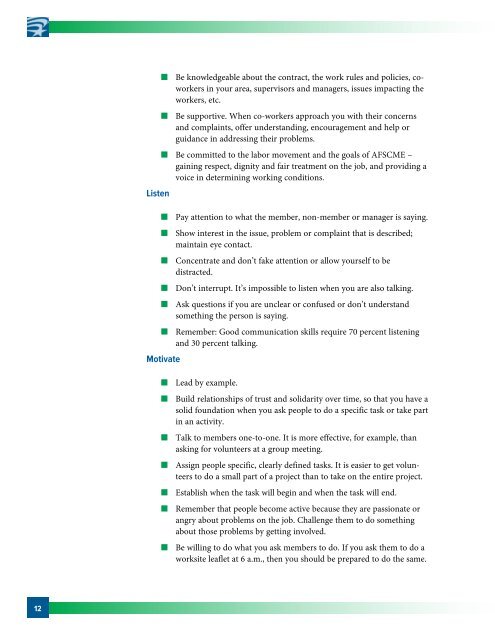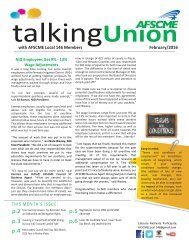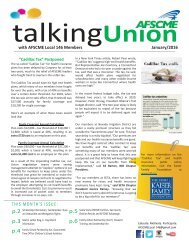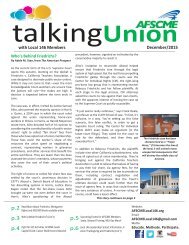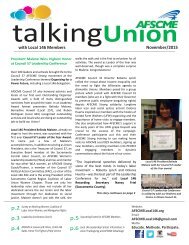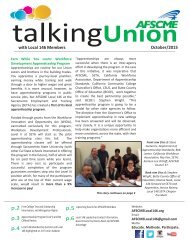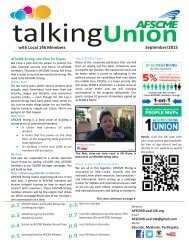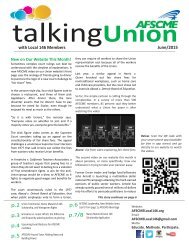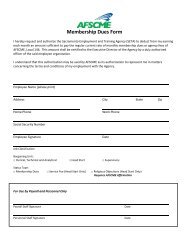STEWARD HANDBOOK
You also want an ePaper? Increase the reach of your titles
YUMPU automatically turns print PDFs into web optimized ePapers that Google loves.
n<br />
n<br />
Listen<br />
Be knowledgeable about the contract, the work rules and policies, coworkers<br />
in your area, supervisors and managers, issues impacting the<br />
workers, etc.<br />
Be supportive. When co-workers approach you with their concerns<br />
and complaints, offer understanding, encouragement and help or<br />
guidance in addressing their problems.<br />
n Be committed to the labor movement and the goals of AFSCME –<br />
gaining respect, dignity and fair treatment on the job, and providing a<br />
voice in determining working conditions.<br />
n<br />
n<br />
n<br />
n<br />
n<br />
n<br />
Motivate<br />
Pay attention to what the member, non-member or manager is saying.<br />
Show interest in the issue, problem or complaint that is described;<br />
maintain eye contact.<br />
Concentrate and don’t fake attention or allow yourself to be<br />
distracted.<br />
Don’t interrupt. It’s impossible to listen when you are also talking.<br />
Ask questions if you are unclear or confused or don’t understand<br />
something the person is saying.<br />
Remember: Good communication skills require 70 percent listening<br />
and 30 percent talking.<br />
n<br />
n<br />
n<br />
n<br />
n<br />
n<br />
n<br />
Lead by example.<br />
Build relationships of trust and solidarity over time, so that you have a<br />
solid foundation when you ask people to do a specific task or take part<br />
in an activity.<br />
Talk to members one-to-one. It is more effective, for example, than<br />
asking for volunteers at a group meeting.<br />
Assign people specific, clearly defined tasks. It is easier to get volunteers<br />
to do a small part of a project than to take on the entire project.<br />
Establish when the task will begin and when the task will end.<br />
Remember that people become active because they are passionate or<br />
angry about problems on the job. Challenge them to do something<br />
about those problems by getting involved.<br />
Be willing to do what you ask members to do. If you ask them to do a<br />
worksite leaflet at 6 a.m., then you should be prepared to do the same.<br />
12


